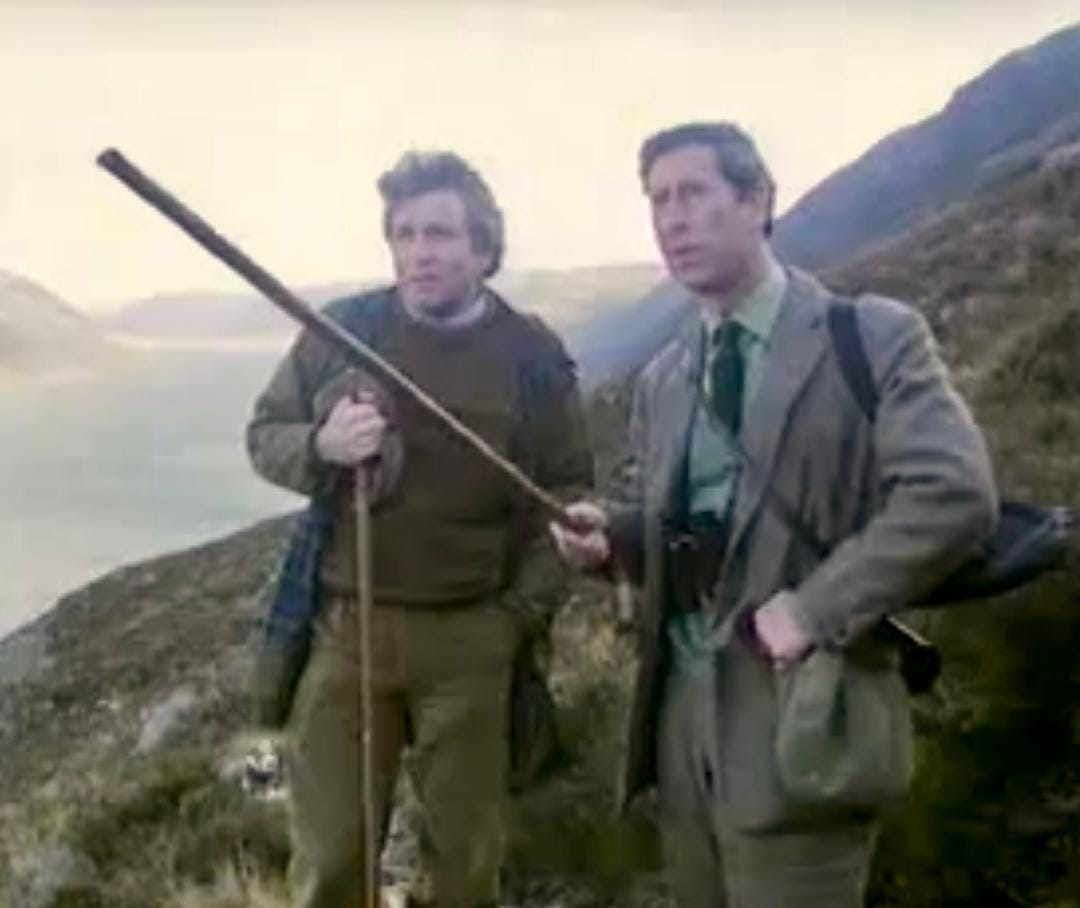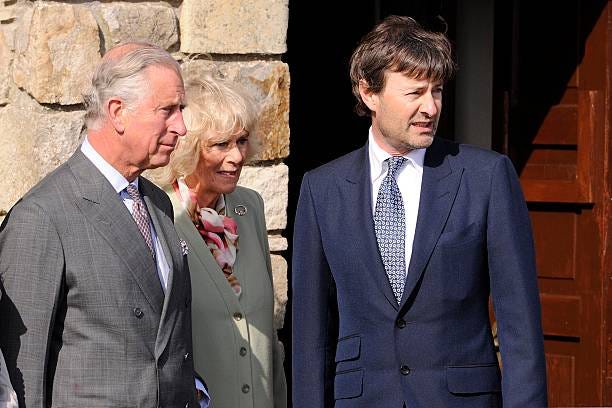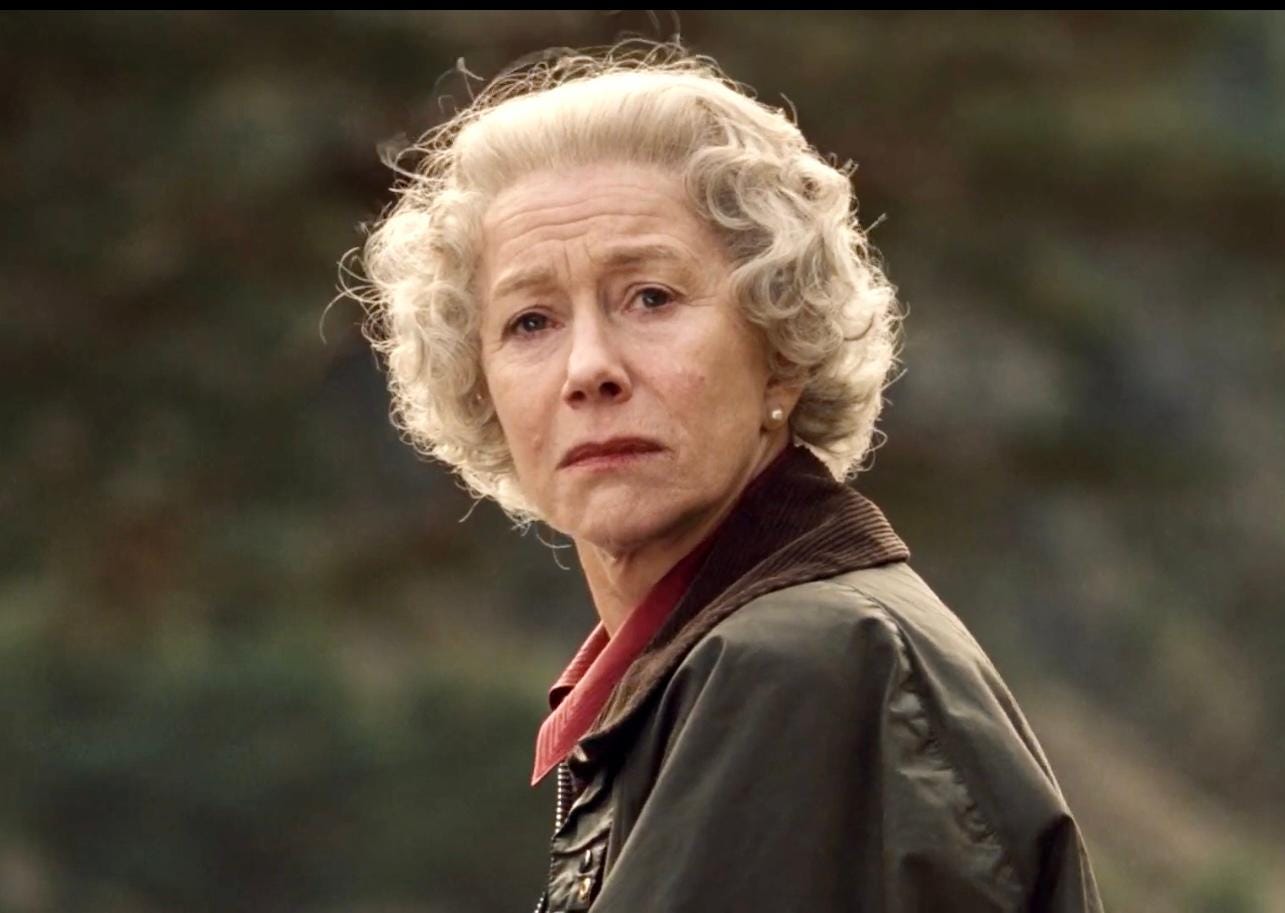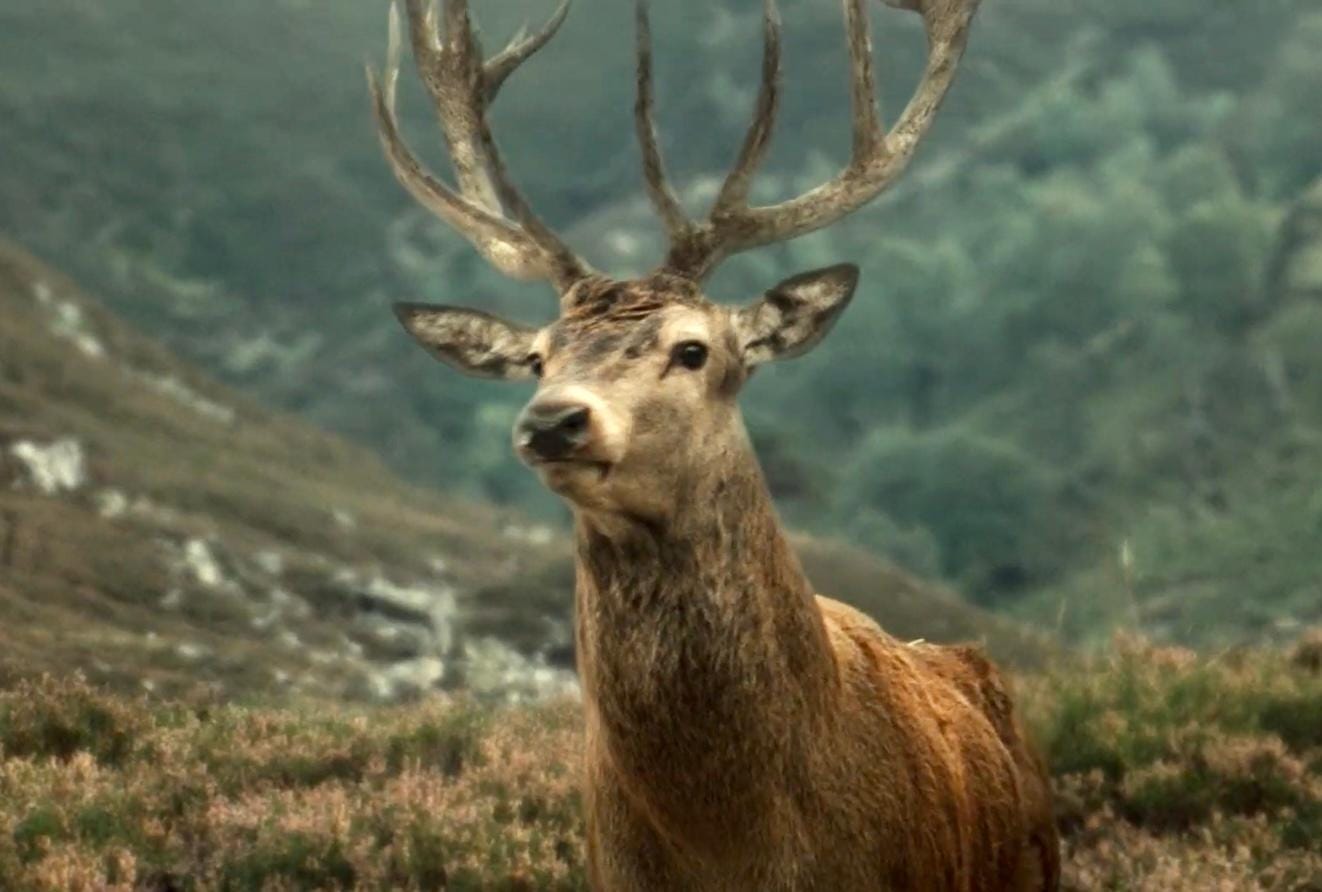Stalking Deer with Charles the Timeless Way
A memorable day on the rugged Balmoral hills when he was Prince of Wales

It is deer stalking season in Scotland—a time of rugged sport that extends from July through February. Stalking has long been integral to the life of the British royal family at Balmoral, the monarch’s estate in the Highlands. Who can forget the moving—if completely fictitious—scene in the 2006 Oscar-winning film, The Queen, when Helen Mirren as Queen Elizabeth II sees at close range a splendid Imperial stag with fourteen-point antlers? After staring soulfully into the beast’s eyes, she hears the crack of a gun and says, “Go. Shoo. Go On.” Only later, on learning that the stag had been wounded and then killed on a neighboring estate, she visits the disemboweled carcass in a cooling room. Visibly moved, she says, “Let’s hope he didn’t suffer too much.”
The stag encounter is a symbolic moment in the film, intended to convey the imagined seventy-one-year-old Queen’s supposed vulnerability following the death of Diana, Princess of Wales. The real Queen wasn’t remotely sentimental when it came to stalking red deer, which she had been doing since the age of sixteen. When she and Prince Philip were on their honeymoon at Balmoral in November 1947, she wrote to her cousin, Margaret Rhodes, that she felt “like a female Russian commando leader followed by her faithful cut-throats, all armed to the teeth with rifles.”
“Quite content to lie in the wet undergrowth for an hour at a time”
Elizabeth and Philip taught their children how to stalk, and they in turn passed down the skills required to shoot a rifle and track indigenous deer on the mountainsides at Balmoral. Charles took up stalking as a teenager and pursued the sport with vigor, charging up and down the hills at a rapid clip that put younger stalkers to shame. As his official biographer, Jonathan Dimbleby, wrote in 1993 when the prince was forty-six, “to the chagrin of lesser spirits who felt obliged to join him, he was indifferent to snow and to rain, being quite content to lie in the wet undergrowth for an hour at a time, slowly edging forward on his stomach, regardless of the streams which lay between him and his quarry.”
Two decades later as he approached his sixty-fifth birthday, he was still stalking fifteen to twenty times each autumn. He no longer chose to pull the trigger, but he served as a professional stalker for others, peering through his telescope and offering guidance on the best stags to shoot for the cull. “Deer are very cunning,” he told Dimbleby. “They always choose positions which are out of the wind.” The point of stalking was to find the older stags. “You don’t want to shoot a young stag,” he explained. Good stalkers should “act like the wolves did in the olden days, look for the weaker ones.”
Eleven years ago, I had a compelling conversation about Balmoral stalking with Timothy Knatchbull, Charles’s cousin and godson as well as the grandson of Charles’s beloved great uncle and important mentor, Lord Louis Mountbatten. Knatchbull had been a survivor of the IRA bombing in 1979 that killed Mountbatten and three others including Timothy’s twin brother, Nicholas, when the family was embarking on a fishing expedition in Sligo, Ireland.

I was interviewing Knatchbull for my biography, Prince Charles: The Passions and Paradoxes of an Improbable Life. Three years earlier he had spoken to me about Queen Elizabeth II for my book, Elizabeth the Queen: The Life of a Modern Monarch. This time we ended up talking for more than two hours at his office in London’s Hammersmith neighborhood. He was slender, confident, and good looking. Only his slightly droopy right eye bore the effects of the horrific explosion on August 27, 1979.
“Spend a day on the hill with him”
We had scarcely begun our conversation when he said, “I want to talk to you about stalking. If you want to understand Prince Charles, spend a day on the hill with him.” For the next half hour, he shared a vivid description of the October day he had stalked with Charles when he and his wife Isabella were the prince’s guests at Birkhall, his home on the Balmoral estate. At the time, Charles was in his early sixties and Knatchbull was in his mid-forties. Knatchbull shared with me the secret behind Charles’s fortitude, and why the prince didn’t take one sip of water during more than eight hours of rigorous exercise.
“Because I knew it was going to be a big day,” Knatchbull recalled, “I helped myself to a full breakfast—eggs, bacon, sausage, cereal, toast, coffee and the rest of it.” Charles arrived while his godson was tucking in. “He looked across to me and said, ‘You can do that, can you? You can eat all that and go out on the hill?’ I said, ‘absolutely,’ and continued eating.”
Keep reading with a 7-day free trial
Subscribe to ROYALS EXTRA BY SALLY BEDELL SMITH to keep reading this post and get 7 days of free access to the full post archives.





